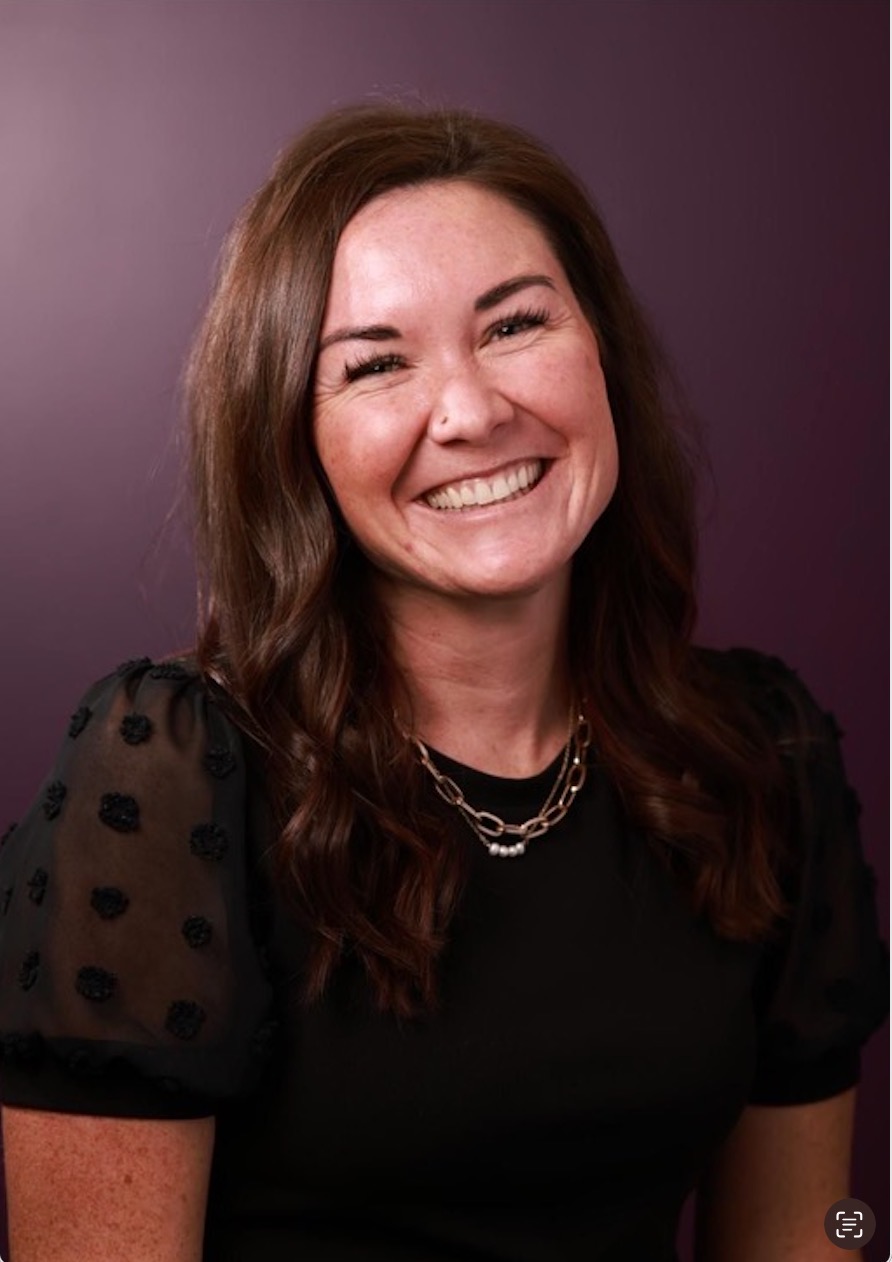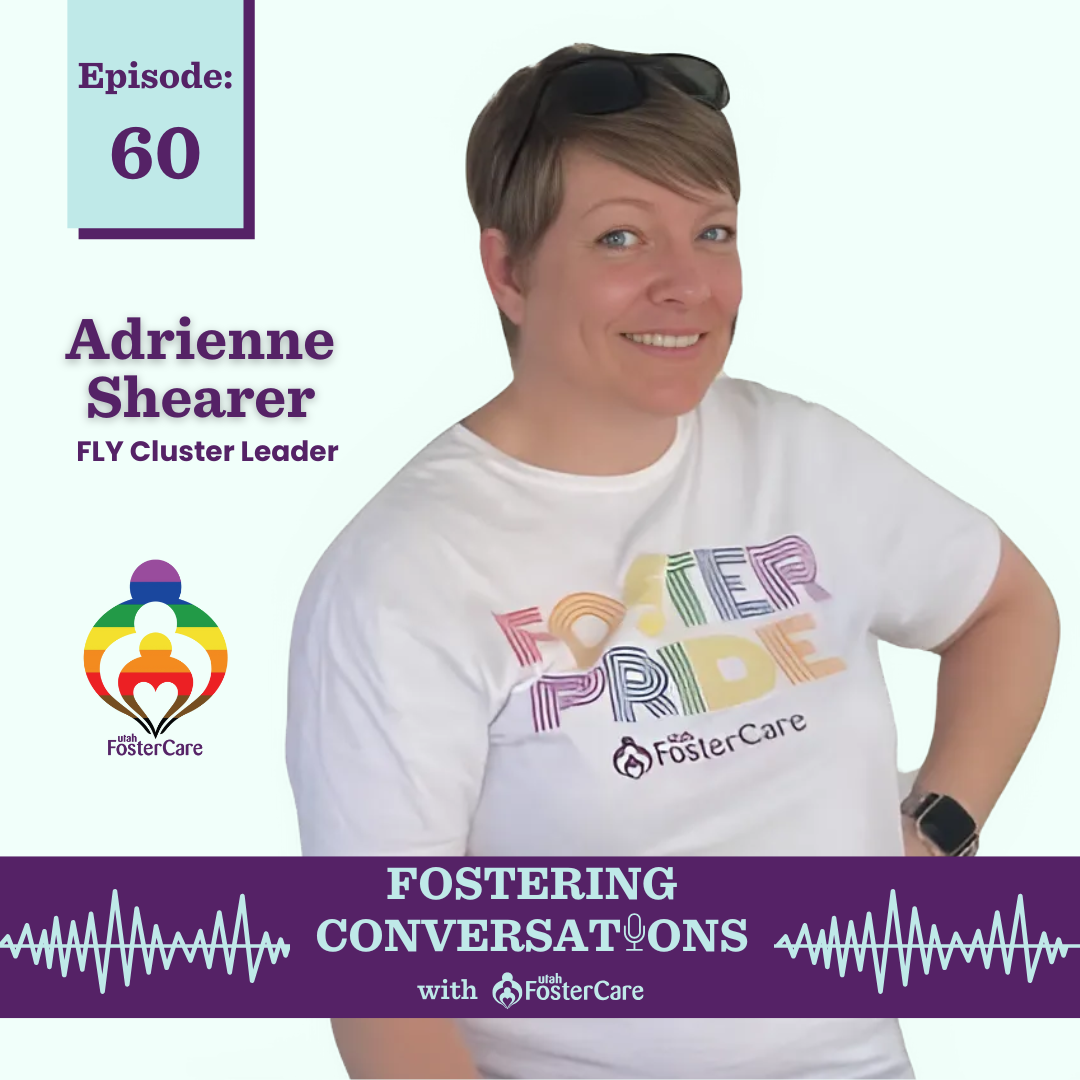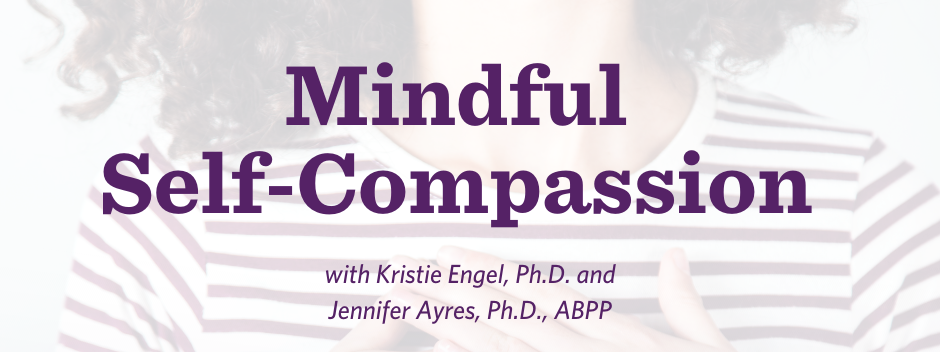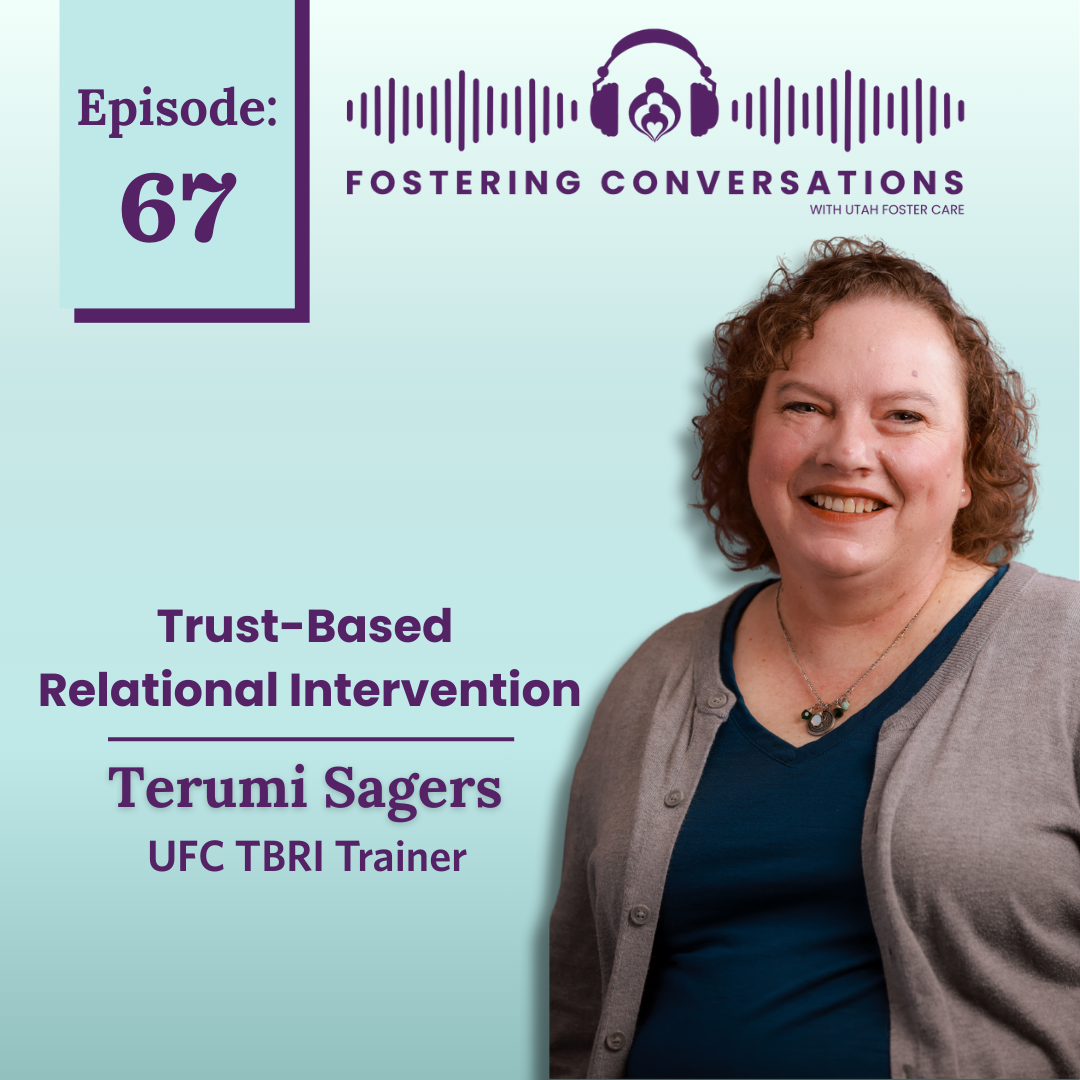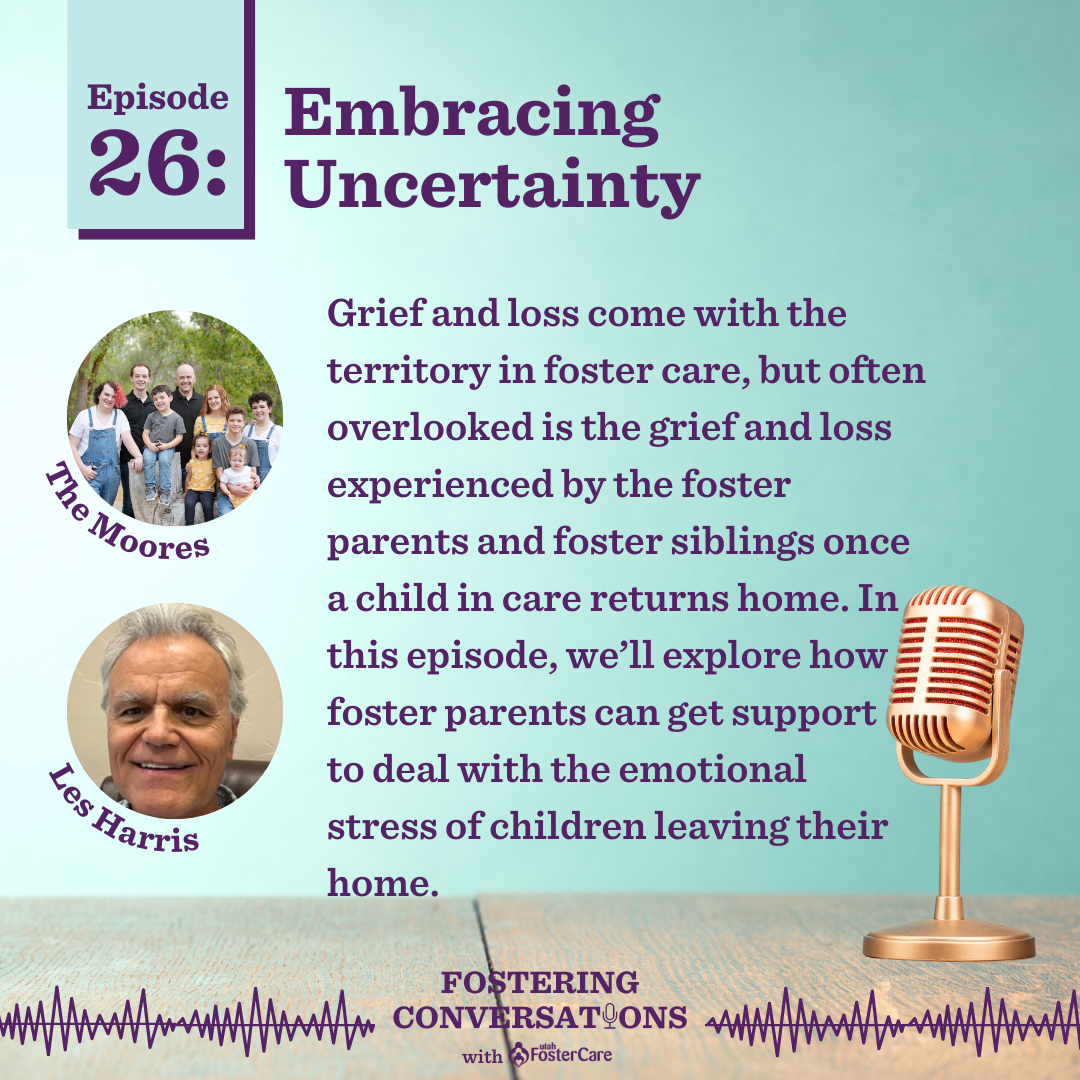Episode Transcript
[00:00:00] Speaker A: Welcome to our June episode. Today we're talking with Adrienne Shearer, leader of the Fly Cluster, families of LGBTQ youth and how we can make safe homes and strong kids. Let's dive in.
[00:00:12] Speaker B: This is Fostering Conversations with Utah Foster Care, where we have insightful conversations about parenting for bio foster, adoptive or blended families to better understand the experience, experiences we all face as families.
[00:00:33] Speaker A: Welcome to Fostering Conversations. I'm Amy Smith, your host, and today our co host is Tammy Carson, who is the director of Community volunteers at Utah Foster Care.
[00:00:42] Speaker C: Thank you for having me on the podcast, Amy. I'm really happy to be here for this conversation that's so important for Pride Month.
[00:00:48] Speaker A: Yes, thank you for joining us. Our guest today is Adrienne. She's a foster adoptive parent and runs our LGBTQ cross cluster group. June is Pride Month, so we wanted to take this opportunity to chat with her about the resources that Utah Foster Care offers and the different resources across the state as well. Adrienne, will you introduce yourself to our listeners?
[00:01:10] Speaker D: Hi. I'm happy to be here. My name is Adrienne. Like Amy said, I've been a foster parent for 14 years. Through that time, we've adopted five kiddos. Our oldest is 25.
Our youngest is 15.
And I have to do a humble brag about my cutest grandson, who's four.
[00:01:29] Speaker A: Awesome. I love that. So Adrienne is very involved with the LGBTQ community, and I would love to start the conversation by chatting about what to do if a child comes out to you. What are ways that a foster parent or a traditional parent could respond if a child comes to them and comes out? Because that can be a really scary thing for kids too.
[00:01:49] Speaker D: Do it can be. Coming out is one of the scariest things. And I think we probably all know someone who has or knows someone who has had a horror story about coming out, especially when you're in care. These are new people to you. So coming out can be even scarier.
Statistically, 30% of children in care are LGBTQ, so it's likely that at some point during your fostering experience, this may happen.
And I think one of the most important things is to show acceptance and love, that it won't change the relationship, that even though this is scary, it might be scary for you as the parent. But say that you're on the same team, that nothing has changed, you love them, and we'll work through it together.
Another thing that's very important is believing these kiddos that come out and say they're. They're bi. They're trans, they're gay, they're lesbian, that whatever they're feeling at that time is valid. And whatever name, whatever pronouns they choose to say, we use those in every conversation, in every opportunity that we can, because that shows them that what matters to them is important to us as well. Lastly, if we have questions, then find answers. There's resources, there's communities, there's opportunities to learn and grow, and so find that community that can help you find those resources.
[00:03:18] Speaker C: So good to share those with us.
Why is it important to have specific space for LGBTQ foster families and the youth in their care?
[00:03:29] Speaker D: Thank you. That's a really good thing to think about.
We.
We know that foster care is just. It's tough. It's tough on these kiddos. They feel different because their life is not what they may see all around them. And then when you add the layer of being LGBTQ on top of that, it's just another, perhaps, barrier to everyone around them. So they just feel more different.
Anytime we get foster kiddos together and they have that shared identity, it's magic. And so if we can get foster kiddos that are also sharing their LGBTQ sameness, then then they have that connection as well, and that helps them to feel more confident, to have a space where they are heard, to have a space where they don't have to question about what they're wearing, what their pronouns are, if it matches, or what anyone will say, where they can just be themselves.
[00:04:25] Speaker A: Yeah, I think with anything that kids or adults experience in life, when you are with people that have similarities, that's where it's comfortable. Right. Like, we want to be with people that are similar to us. So I think that. Amazing that we have these resources and these communities. So you run what's called the Fly Cluster. Can you tell us what that stands for and what a cluster is in general?
[00:04:51] Speaker D: Clusters are organized around the state of Utah for Utah foster care, mostly geographically, so that it can be a support with other foster parents in your same area.
They have activities, learning opportunities, classes where you can get to know each other and have that support.
For the Fly Cluster fostering LGBTQ youth, we cover the whole state of Utah because we're found all over the whole state of Utah. And so it is an opportunity where we have activities, again, to support those that are LGBTQ or those that are supporting LGBTQ youth. Anyone that is an ally, we welcome. I always say, I think everyone should be part of this cluster because we always need more, and we want to show these kids just how special they Are.
[00:05:44] Speaker C: I love that. The intention behind that, for these children to feel loved, to feel connected, to see how they are like others, is beautiful.
So how often does the fly cluster meet and what types of activities do you do together?
[00:05:59] Speaker D: We meet once a month virtually so that we can reach everyone across the state.
And it is on the second Wednesday of the month and we meet for an hour just over zoom, so people can ask questions, people can again make ties to the community, find resources, answers, just as parents, kind of expressing what questions they have or what they might be feeling so that then they can go and be there for their children.
We also have activities, again, just a fun get together where these kids get to be themselves. We've done group bear floats at the park.
We've done just hot chocolate bars. We've done movies before.
And so we try to just do fun things where anyone is welcome and we can have time to chat and get to know and be open.
[00:06:53] Speaker A: What are some of the biggest successes or things that you've seen through this fly cluster as families are getting to know each other or youth are getting to spend time together? Like, do you have any examples or thoughts about, you know, what have you seen that is like, oh my gosh, this is why we do that.
[00:07:12] Speaker D: I love having been able to open up a space where parents can come and share their own resources, where they shared their journey, where someone can say, hey, this is what I'm experiencing. And another parent can say, I was in the same boat and this is what I did in the. In that situation. This is what I found helpful, or, try this. And so it's not so much as coming to the expert, but it's forming a community of people who understand.
[00:07:46] Speaker A: Yeah, I think that makes a huge difference in all aspects, but especially this, as some of these foster families may be navigating it for the first time. And so I think that can be a really important space to be in, to have other resources from other foster parents. I love that you say, you know, it's not the experts necessarily, but it also is the experts because us people who are living it become the experts. Right. So I love that, you know, that connection that it brings. That's awesome.
[00:08:14] Speaker C: Yeah. That lived experience is so important for others to be able to tap into. How did you handle this situation? How did you handle also the emotions that come with that? And how do you help this child navigate through the new world they're in, to honor their identity and all the spaces you might be in with them, with your family members and with others in the community. I think that's so important.
Speaking of community, here's a question I have. If there are community members out there listening to this, and they have a heart for this work, especially for LGBTQ youth or families, are there ways in which they could donate, say, maybe space for events or other ways that they could support the Fly Cluster even if they are not a foster family?
[00:08:59] Speaker D: Absolutely. I know Utah foster care has great people to handle that. I think Tammy would be a wonderful person to reach out to.
Space is always needed, you know, to have a space where we can gather. I mentioned that. I like to have it open where we can just communicate. And so having a gathering where is big enough to handle a lot of people, but small enough where we can have conversations with each other is important.
I would love to have parties hosted. We actually had a catering company, Lutz Catering, who hosted a dinner for our lgbtq. You. They went and learned how to cook the dinner, and they prepared the dinner and had a fancy dinner. And just opportunities like that, even away from parents where they can connect and relate, is really important.
So speak to Tammy if you have any resources that you'd love to share.
[00:09:57] Speaker C: Yeah, happy to take anyone's help.
[00:09:59] Speaker A: Yeah, I think it's so important to recognize, you know, we were chatting before we started recording that you don't have to be a foster family to help. And, yes, we need more foster families, and we especially need foster families that are willing to support and love and welcome LGBTQ youth into their home. But if you can't foster, which not all of us can, there are so many other ways to be involved and to give back and to create space and connection and opportunities for foster families and for the youth in their care. So I love that there are lots of resources around the state. And you talked about, you know, if a child comes out to you, what can you do? And. And sometimes that might be overwhelm, whelming as a parent. But. But where are some of the resources that you could recommend for parents to go and get that support that they are looking for?
[00:10:50] Speaker D: One of the great resources that has been prepared is on the Utah Foster Care website, utahfostercare.org it's under Foster Parent Resources, and there's an LGBTQ tab under that. There's lists of resources organizations that run throughout the state, as well as specific four different counties.
And I think, because Utah has recognized. Fortunately, we've recognized that there is a need for these kiddos because Utah has one of the highest suicide rates for these teens. So Utah has really come Together and made different organizations Pride center and Circle all across the state. They're saying, this is a need, and. And this is how we can fulfill that. So even if you're in the four corners up north, there are places all across the state that you can find. And a good place to start is on the Utah Foster Care website, and.
[00:11:46] Speaker A: Anybody can access those resources. It's not just foster parents. So that's a great link to go to and to utilize as anybody that's listening and is looking for more support.
What is some of the just great moments that you've had as a foster and adoptive parent in or out of the LGBT community?
[00:12:07] Speaker C: Either one.
[00:12:07] Speaker A: But just what are some. I think it's always awesome to share the great moments that we have as foster parents, because, like you said earlier, you hear the horror stories, but there's also a lot of beautiful moments with taking kids indoor care and loving them. Would you be willing to share one.
[00:12:26] Speaker D: Or two of those personally? Out of my adopted kiddos, we've had two who identify as queer, and they have both individually said, I don't think I would be where I am if I were with my original family.
And that's. That's hard to kind of take in sometimes, but because it is so difficult to be queer, and sometimes children are brought into care partially because of their being lgbtq.
And so it's really cool just to hear our personal experiences of our kiddos saying, like, thank you for being open and for having this space where they could explore and they could grow and become themselves.
[00:13:19] Speaker C: That's so good.
I would love to highlight that as foster parents, you have made a safe space for the children that have come into your care, because there can be a lot of fear wrapped around parenting a child who's queer, and you've done a beautiful job of doing that.
If you could say even one thing to a foster parent, I know we touched on what are things you would say, but what would you say to them to help them address the fear that they might have?
[00:13:48] Speaker D: The fear that the parents might have, I think could be a very real fear of being unsafe.
And I think it's so important.
Like, Tammy, you mentioned creating a safe place.
Showing that this home is safe for anyone to come and be who they are is important. Another resource that I want to mention from the Utah Foster Care website is a safe home pledge that lists things that you will do in your home, like honoring the preferred pronouns and preferred name and providing a safe space.
And it just kind of lists things that you can do in your home.
We actually have it hanging on our front door, inside the house. So every time the kids leave, they see it.
So if parents are feeling fearful about having LGBTQ kids in their home, reach out so that you can find. Find help and support, because it can be scary, and there are some very real fears that helping those children to feel safe with you. We often talk about how kids just have one safe person that they can be themselves with. It can make a huge difference.
[00:15:04] Speaker A: I'm thinking of one of my youth, not. Not a child that lived with me, but a youth that I've really grown to love over the years.
And as they transitioned and just seeing how much they struggled before the transition versus how much they're thriving now that they've been accepted, it. It really is really neat to see that, yeah, you weren't. You weren't yourself, and now you are, and you're feeling proud of who you are, and people are accepting you. And it is really neat to get to see that child be embraced and supported when it was really hard for a few years, I'm sure, for them. And just. You can just physically see the change of, you know, feeling confident and embraced as who. Who they are and who they want to be. And I think that's a really neat experience, and I'm sure you've seen that with your kids and other. Other kids in the community, but it is, I think, can be very scary for someone that it's foreign to. But seeing that is. It's really neat and really rewarding to see kids be accepted.
[00:16:13] Speaker D: That reminded me. I think I forgot because it's been so many years since our kids have come out, but our. One of our little kiddos was really suffering from depression, and they were just struggling. The doctors said, like, they're too young for these many problems and to fill this deep. But they were. They were severely depressed. They were having anger issues at school. They were having anxiety.
And through those years of transition has just completely turned around. Their depression is nowhere near what it was.
And sometimes it would have been easy to say, like, well, yeah, they're suffering because they're in foster care. They're having these experiences that are really traumatizing, being taken away from your original family.
But then to see one of those things that needed to change was them allowed to come out and be themselves. And that is what helped them the most.
[00:17:11] Speaker A: And I think as a very conservative community, it can be very scary for a lot of people to accept. But just seeing kids thrive when they can be themselves is really, really Neat. So.
Well, we're about out of time. It always goes fast. But, Adrian, are you going to be at our pride booth for Utah Foster Care coming up in June?
[00:17:36] Speaker D: Yes. I'm so excited that Utah Foster Care will be continuing having a booth. We've done it for a couple years, and it's so exciting to be able to share that space with so many wonderful people that have so much love to give.
[00:17:52] Speaker A: Yes. I remember last year we had the big sticky note board and everybody got to come up and write sticky notes of just, like, ways that they felt loved or embraced. I think it was. And it was just so cool to see all the different words on there. So make sure to go look for the big purple tent, the Utah Foster Care tent, and you will find awesome allies under there.
So, Tammy, is there anything else that you wanted to ask or share before we wrap up this awesome podcast with Adrian today?
[00:18:18] Speaker C: I would love to share my gratitude for both of you and the examples you are of being foster parents and adoptive parents and being a safe space for children. It is not always easy in a conservative culture to even know how to land in that, because I think sometimes we worry that if we accept and love, it does something that is not good for children, when in fact the opposite is true. And you both have accepted and loved children where they are. And I think of all of the foster parents around the state who have queer children in their home, so grateful for the work that you're doing to make this a safer space for them and inviting the rest of us to elevate ourselves to be more loving and more accepting. So thank you for the work that you're doing.
[00:18:59] Speaker A: Thank you. Tammy, thanks for being our co host today. And Adrienne, thank you for being our guest today and sharing all of these awesome resources and information with us.
[00:19:07] Speaker D: Thank you for having me.
[00:19:08] Speaker A: If you want to learn more about how to get involved with the fly cluster, or if you want to just learn more about foster care in general, you can head over to utahfostercare.org to learn more. Thanks for joining us on Fostering Conversations.
[00:19:23] Speaker B: This has been Fostering Conversations with Utah Foster Care. Thank you for joining us. For more information, go to utahfostercare.org we'll see you next time.
